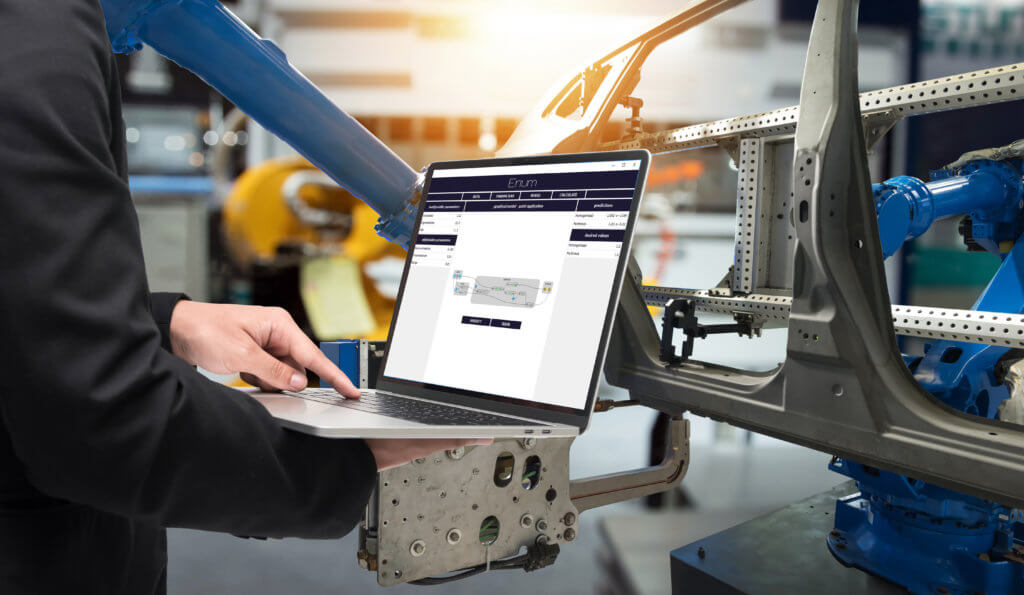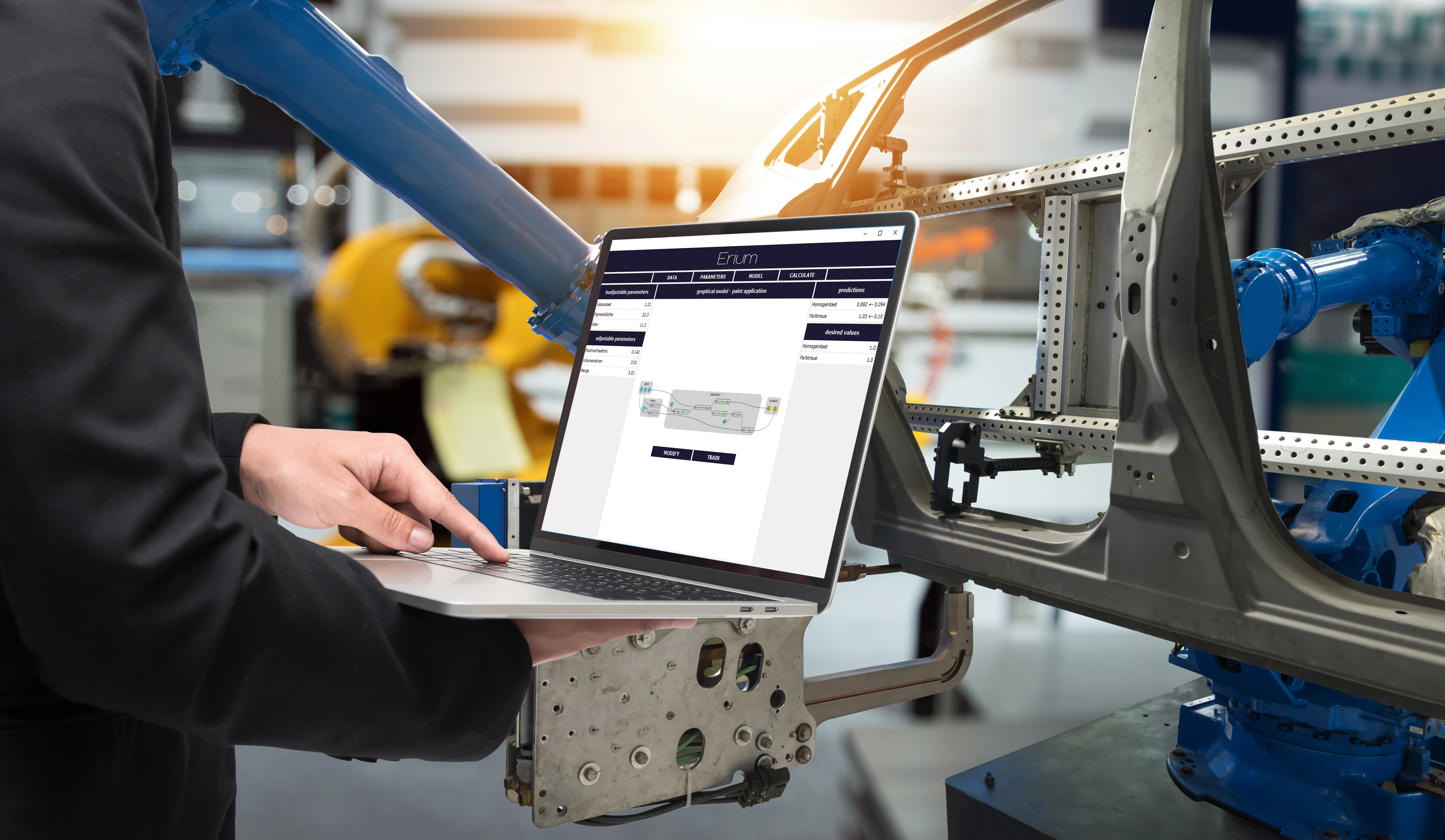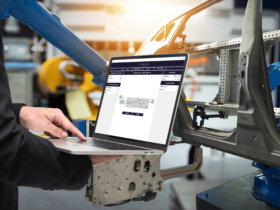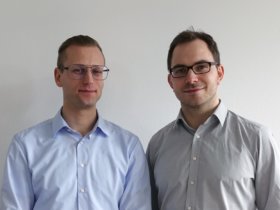Metalworking inspired by the stars: Astrophysicists looking to optimise milling
Recently, even astrophysicists have started taking an interest in EMO Hannover. Garching-based Dr. Theo Steininger and Dr. Maksim Greiner, former PhD students at the Max Planck Institute for Astrophysics in Garching, have developed Artificial Intelligence (AI) software that makes use of the latest statistical analysis methods developed for astrophysics. They have successfully deployed the software for door assembly by a German premium car manufacturer, but are now looking to conquer the metalworking market as well. They are hoping to discover potential applications in Hanover in September.

The new, statistical approach of the young entrepreneurs from Garching in Bavaria permits the real-time evaluation of machining processes. This is still some way off, but the usefulness of the method has already been proven by the automotive industry. In an effort to reduce costly reworking, it was looking for an AI system that could be used to mount doors more accurately and with greater process stability.
Difficulty in identifying end positions
The task is described in a white paper by the two ex-scientists: “Determining the best position for mounting a vehicle door is difficult. Neither the door nor the body have been painted at the time of installation. There are no windows, accessories or seals. How all these factors influence the door position through deformation and additional weight must be anticipated and compensated for if the desired end position is to be reached. That’s why employees always have to realign the doors manually after assembly.”
The solution devised by the astrophysicists, who recently founded the company Erium GmbH in Garching, is to combine machine intelligence with the knowledge and experience of process experts. Based on this additional information, the AI software can calculate the ideal assembly positions after only a few vehicles have been built.
“Fast machine learning is very important for us,” explains Theo Steininger. “This distinguishes it from the highly flexible neural networks, which require a lot of data. We have to make do with very little data – in contrast to other typical Big Data tasks, which can be solved at great technical expense and using correspondingly fast, high-performance computers.” With such a small amount of data, however, the degree of technical effort involved is minimal, and laptops are currently sufficient for the purpose. Much greater effort is required, by contrast, for developing the algorithms that analyse and process in real time the data needed for the process. “Before the actual software is installed, we analyse the problem along with the customer’s experts,” explains Steininger. “Together, we define the optimisation goal and the critical process steps.”
Expert knowledge as the basis of the analysis
These expert discussions allow insignificant parameters to be excluded that play no or only a minor role. A clearly defined network of dependencies is thus created step by step, which, according to Steininger, can be used to create a fast-working algorithm. “In this way we abstract facts that experts in the field take for granted, and explain them to the program – such as Ohm’s law or the fact that velocity is the derivative of place after time,” says the astrophysicist. “However, these are non-trivial relationships that a neural network must first learn from the data.” Yet in contrast to such relatively self-evident aspects, there are other questions that the process experts must first consider. For example, whether a car door has actually been deformed by a new type of sealing tape, as they predicted based on their experience. “Instead of the usual method of ‘Give us all the data and let’s see what we can do with it’, we take a different approach,” says Steininger. “We put the human element first, exploiting the expert’s knowledge as the foundation of the analysis.”
So far, the method has mainly been used in the automotive industry, but the Garching-based company is now also targeting machining processes. Potential uses include milling spindles, the rotational behaviour of which deteriorates with increasing wear. The spindles start to wobble to varying degrees, depending on the type of wear. Enriched with expert knowledge, the astrophysicists’ algorithm can now optimise how to use the spindle depending on the degree of wear. But Steininger is already thinking ahead: “The question as to whether the higher spindle wear is justified when machining border areas is of particular relevance in components which need to be manufactured in a very short time. Our program considers not only the machine parameters themselves, but also soft factors such as customer relationships.” For this, however, the Garching-based experts need access to their customers’ production and quality data.
EMO Hannover 2019 – a source of detailed information
Yet this was not the only reason that the astrophysicist wished to obtain detailed information about EMO Hannover 2019. Steininger will be on the joint start-up stand of the Federal Ministry of Economics and Energy (BMWi) in Hanover. He is interested in showcasing his company, but he also wants to find out more about highly complex and extremely high-speed processes, some of which are too fast to be controlled by humans. He is particularly interested in how the digitalisation wave is progressing, precisely because their AI program requires such production and quality data. Steininger: “That’s why having personal discussions with exhibitors and users is so valuable to me.”
Author: Nikolaus Fecht, specialist journalist from Gelsenkirchen
(Size: around 5,640 characters including blanks)
Background Information
Profile of Erium GmbH
The original idea for setting up Erium GmbH in Garching war born in 2015: it was based on over eight years of astrophysics research. During the course of their work, the two founders, Dr. Maksim Greiner and Dr. Theo Steininger, discovered that the potential presented by modern statistical methods in the manufacturing industry is far from exhausted. After carefully preparing and developing their first prototype, they decided to devote themselves to this issue full-time, and founded Erium GmbH with eight employees.
Vita Dr. Maksim Greiner
Dr. Maksim Greiner studied physics at the Ludwig Maximilian University in Munich and at the Université Paris Diderot. He then completed his doctorate at the Max Planck Institute for Astrophysics in Garching. His research on information theory has made him an expert in statistics, machine learning and the practical implementation of algorithms. Today he is Managing Director and CTO of Erium GmbH.
Vita Dr. Theo Steininger
After studying particle physics and string theory at the Technical University of Munich, Dr. Theo Steininger obtained his doctorate at the Max Planck Institute for Astrophysics in Garching. He developed scientific software packages that made him an expert in algorithms and software design. As an alumnus of the Bavarian Elite Academy, Dr. Steininger also has a strong entrepreneurial background.
Start-ups at EMO Hannover
This year, EMO Hannover is once again helping young and innovative companies to market their new product and process developments. The Startup Area will feature the international young tech enterprises @ EMO Hannover section. In addition, German start-ups will have the opportunity to present ideas to established companies on the joint stand sponsored by the Federal Ministry of Economics and Technology. The forum for presentations and pitches as well as the large networking area provide ideal opportunities for getting new ideas heard. Contact: Stephanie Simon, (e-mail)




